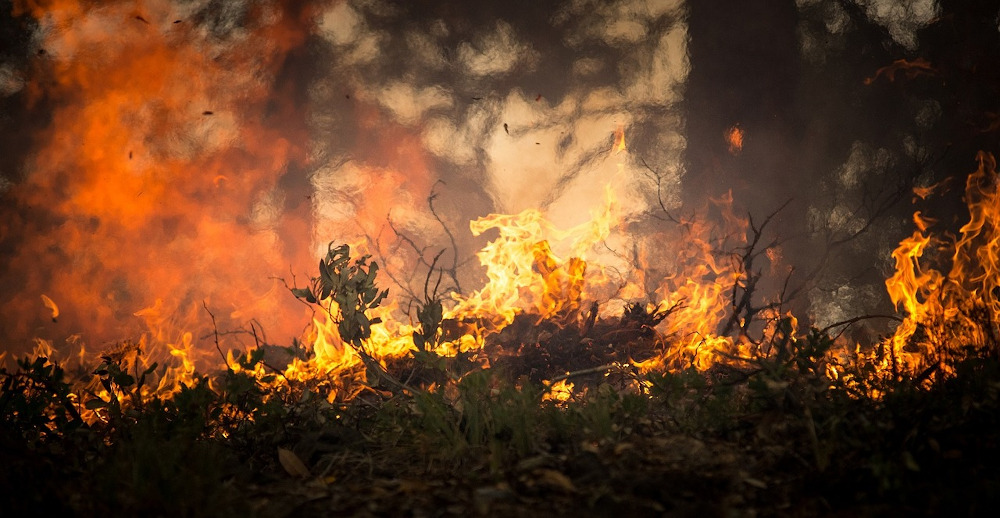The Rainforest is Burning- Here's How You Can Help

A state of emergency has been declared in Brazil due to the fires that have been burning throughout the Amazon rainforest for the past month.
The fires are so widespread that the smoke from them can actually be seen from space and it’s darkening the skies in many nearby towns and cities. The fire and its smoke are harming people and animals throughout the region, as well as the planet.
While fires are not uncommon during the dry season since they’re often set by farmers wanting to clear their land for farming or ranching, these levels are much worse than usual, and the recent rollback of environmental protections by the Brazilian government makes them even more dangerous.
To say this is not a good situation would be quite an understatement, so to fully understand the severity of our current situation, let’s review the importance of the Amazon rainforest.
Why This Is Happening
Although Brazil has shown a strong commitment to ecological preservation in the past, after a recession in 2014, things started to change. Some Brazilians turned their focus toward economic development, at the expense of environmental protection if necessary.
The current president, Jair Bolsonaro, took office in January and in less than a year has rolled back environmental protections significantly. It is his anti-environmentalist rhetoric that has emboldened farmers in states his allies control to burn land at a rate that’s unprecedented within this decade.
How You Can Help
When we see tragedies like this occurring in the world, it’s understandable to want to do whatever we can to help.
But since President Bolsonaro has refused to accept the $22.2 million in aid offered by the G7 to help fight off these fires, you may be feeling a little hopeless. You may even be thinking, “So, if we can’t donate money, what can we do?”
Plenty!
First of all, you can still donate money if that’s what you’d like to do. There are lots of organizations within and outside of Brazil that could really use it.
Second, there are ways to help without giving money at all, and in some cases by refusing it. Here are a few suggestions to get you started:
Donate to Amazon Watch- An organization that’s been protecting the rainforest and indigenous communities since 1996, Amazon Watch can put your money to good use.
Buy products from brands committed to fighting deforestation- Certifications like the ones from Forest Stewardship Council or Rainforest Alliance signify that the products bearing its seal come from responsibly-managed forests.
Cut back on beef and soy products- Beef and soy are some of Brazil’s main exports, and land is being cleared to make room for them. Knowing this, you may choose to cut back on your personal consumption of those items, or be careful about sourcing them from farmers that respect the environment.
But these are largely stop-gap measures. Is there anything we can do to stop all of this from happening again in another 20 years?
A Better Way Forward?
A lot of the recent deforestation is due to economic stress on Brazilian farmers and families. In many cases, these people are developing forested lands so that they can produce and provide for their families.
Many of these people bristle at the idea of foreign powers telling them what they can and can’t do with the land in their country, a feeling that Bolsonaro shares.
Their feelings are valid. While the Amazon rainforest is a unique and beautiful ecosystem, if developed countries hadn’t already, well, developed their forests, we wouldn’t be so reliant on it as a carbon sink.
It could be useful to acknowledge that when we call for the preservation of the rainforest, we’re denying developing countries access to the tools we used to develop our own. And while it’s not necessarily fair to ask you to keep your forests because we’ve already developed ours, for the sake of our shared planet, we need you to be better than we were.
So, how can we even out this imbalance? Developing nations have pristine natural spaces that developed nations value. Developed nations have money to invest in the things they value. Why don’t we pay people to be good environmental stewards?
It builds on a process that’s already working for carbon offsets, and it would help to relieve economic pressures that drive development in the first place.
This system has the potential to be a longterm solution rather than a quick response to an emergency.

Kayla Robbins
DoneGood Contributor
Freelance writer working with bighearted businesses who want to better our world.


Leave a comment